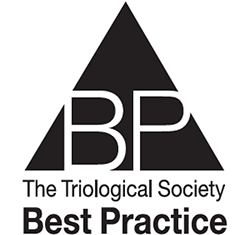 TRIO Best Practice articles are brief, structured reviews designed to provide the busy clinician with a handy outline and reference for day-to-day clinical decision making. The ENTtoday summaries below include the Background and Best Practice sections of the original article. To view the complete Laryngoscope articles free of charge, visit Laryngoscope.com.
TRIO Best Practice articles are brief, structured reviews designed to provide the busy clinician with a handy outline and reference for day-to-day clinical decision making. The ENTtoday summaries below include the Background and Best Practice sections of the original article. To view the complete Laryngoscope articles free of charge, visit Laryngoscope.com.
Explore This Issue
May 2025BACKGROUND
Hypoglossal nerve stimulation (HGNS) therapy has become a more frequently employed tool in the treatment of obstructive sleep apnea since its approval by the U.S. Food and Drug Administration in 2014. One of the benefits of HGNS therapy is the low morbidity associated with the procedure. With only two external incisions, minimal operative times, and no pharyngeal wounds or skeletal osteotomies, the procedure is being widely employed in patients with advanced age and complicated medical histories. Because of this, providers will inevitably encounter patients on anticoagulation.
A 2020 review of the Manufacturer and User Facility Device Experience (MAUDE) database noted 196 adverse events associated with HGNS surgery, of which 11.6% were labeled “hematoma.” When medically feasible, cessation of anticoagulation, which includes antiplatelet therapy, direct oral anticoagulants (DOAC), and vitamin K antagonists, is preferred. Some patients, however, particularly those with valvular heart disease or other high-risk cardiac disease, require some form of concurrent anticoagulation therapy during surgery. This article’s goal is to clarify the best practice regarding the placement of the HGNS in patients needing anticoagulation during surgery.
BEST PRACTICE
To avoid clinically significant hematoma in HGNS surgery and to reduce the risk of thromboembolism in high-risk populations requiring anticoagulation, a research-guided practice should be used to optimize patient care when anticoagulation during surgery is required. Based on cardiac implantable electronic device infections research, continuation of warfarin should be considered instead of heparin-based therapies to reduce the risk of clinically significant device-pocket hematoma (CSH). Antiplatelet therapies should be discontinued as able, as concurrent anticoagulation and antiplatelet therapy have been shown to significantly increase the risk of CSH. Lastly, the continuation of DOAC, although unlikely to increase the risk of CSH based on available data, has not been studied thoroughly enough to make definitive recommendations.
Leave a Reply